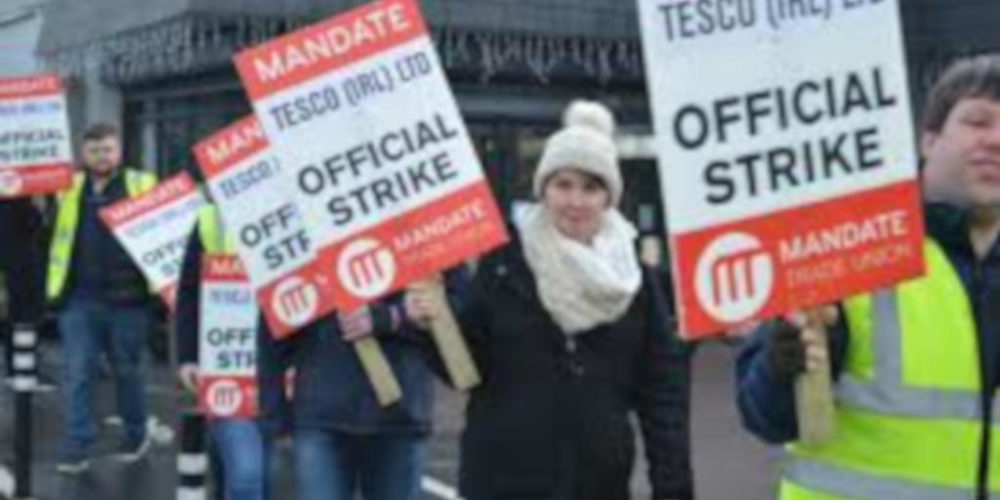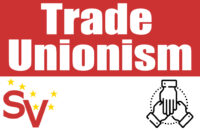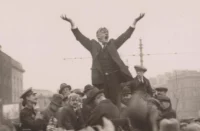It’s no surprise that the largest attendance at a fringe meeting at the ICTU delegate conference last month was the one organised by the Trade Union Left Forum, on the theme “Anti-union legislation and how it affects workers’ rights.”
This is a reflection of the frustration and anger among workers at the negative balance of power between workers and capital. Anti-worker legislation, particularly the Industrial Relations Act (1990), has pushed the balance of power firmly onto the side of employers.
Employers are actively and aggressively trying to bring about an end to union membership among Irish workers. They will stop at nothing in their attempt to smash unions, and they are protected and supported by anti-worker legislation. They regularly target shop stewards and suspend or sack them on a trumped-up charge. They do this knowing that a single-worker dispute (in accordance with the 1990 act) can be dragged out for well over a year in the Workplace Relations Commission and the Labour Court.
This may eventually lead to a shop steward being awarded a few thousand euros in compensation; but employers are willing to pay this. They see it as money well spent for the effect it has in the work-place, sending a chill through the entire work force. It frightens and intimidates everyone, as the perception is that if they can sack the shop steward, what hope has anyone else got?
This is one of the most aggressive methods that employers are using against workers; and it needs to stop. Anti-victimisation legislation must be introduced to protect individual workers from this type of treatment.
And penalties for employers found guilty of this type of victimisation must be substantial, as transnational corporations have deep pockets and are willing to pay compensation in the tens of thousands to get rid of what they call a “trouble-maker.” If they are to protect workers properly the penalties must reflect the size and profits of the company involved.
After the Dunne’s Stores strike a couple of years ago all those with less than twelve months service who took part in the strike were sacked, because they were not entitled to compensation: you need to be employed for a full year. This must be reduced. 85 per cent of the workers in Dunne’s Stores are on minimum-hours contracts; and those who took part in the strike had their hours reduced to the minimum directly after the strike.
Despite being a very profitable company, Dunne’s Stores does not recognise the workers’ union (Mandate) and refuses to engage in the industrial relations mechanisms of the state, the Workplace Relations Commission and the Labour Court.
After the recent dispute in Tesco, workers on minimum-hour contracts had their hours reduced. The company has refused to allow union officials onto their premises since the dispute, and have stopped the practice of deducting union dues from wages. They have also picked on shop stewards and union activists for special attention. Lloyd’s Pharmacy has carried on in a similar fashion.
Employers are willing to offer large redundancy payments to long-serving employees to get rid of of senior people who are on better contracts. This gives them a free hand to slash the pay and conditions being offered to new recruits.
Union density has fallen to 24 per cent, a record low point—down from almost 60 per cent in the 1970s. Meanwhile confidence among employers is at a record as the race to the bottom in wages and conditions goes on at breakneck speed.
Ireland now has the worst levels of low pay in the EU and the second-worst in the OECD. Precarious employment, part-time work, short-term contracts, bogus self-employment and the gig economy are the result of this onslaught on the working class.
The Trade Union Left Forum is in the process of starting a workers’ rights campaign to get all anti-union legislation abolished, to tip the balance of power back in favour of workers. This will level the playing-field and give workers the ability to fight employers for a fair share of the profits produced.
The campaign will be fighting for anti-union legislation to be replaced with a Bill of Rights for workers. Workers must be allowed to join a union, and employers must engage with it and facilitate its membership. The Bill of Rights would have to include, at a minimum:
- the right to union access for all workers, not just union members
- the right to union recognition
- full collective bargaining rights
- the right to take sympathy and supportive action
- the right to take part in political strikes
- the right to take immediate action
- the right to stage sit-ins.
“Social dialogue” is not collective bargaining and should never be seen as such—not when the balance of power is stacked against workers. As it stands, there are 450,000 part-time workers in the country. Of these, 115,000 want more hours.
It is not a “life-style choice”: it is exploitation. With the Employment (Miscellaneous Provisions) Act, zero-hour contracts may be gone, but one-hour contracts are not.
47 per cent of workers in the bar trade say they believe the allocation of hours is used to manipulate, intimidate and control workers. In the general retail sector this rises to 51 per cent. In Dunne’s Stores, 85 per cent of the workers surveyed say that the allocation of hours is used to intimidate and control.
There is no level playing-field. All the power is on the side of the employers. The Government and the Assembly in the North have the power to abolish anti-union legislation and establish a Bill of Rights for workers; but they will have to be forced.
The state is not benign: it always acts in the interests of capital. As James Connolly said, “governments in capitalist society are but committees of the rich to manage the affairs of the capitalist class.”
Capital will not compromise without a fight. Trade unions have more than 700,000 members, and they must lead the struggle for workers’ rights, to give them the power to achieve better lives for members, their families, and their communities.






